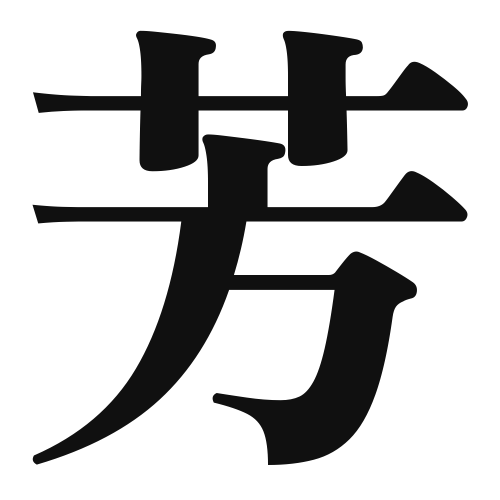1. Overview of Meaning
The kanji “芳” (pronounced “hou” or “yoshi”) generally means “fragrance” or “aroma.” It is often associated with pleasant smells, particularly those of flowers and plants.
2. Formation and Radical
Formation of the Kanji: The kanji “芳” is a phonetic-ideographic character (形声文字), which combines a meaning component and a sound component. The left part, “艹” (the grass radical), indicates a connection to plants, while the right part, “方,” suggests a phonetic element.
Radical: The radical of “芳” is “艹,” which is commonly associated with plants and vegetation.
3. Examples of Usage
Common Words and Phrases: Some frequently used words that include “芳” are:
- 芳香 (ほうこう, houkou) – fragrance
- 芳しい (かんばしい, kanbashii) – fragrant, sweet-smelling
Example Sentences in Daily Conversation:
- この花はとても芳しいです。 (This flower is very fragrant.)
- 芳香剤を使って部屋をいい香りにしました。 (I used an air freshener to make the room smell nice.)
4. Synonyms and Antonyms
Similar Kanji: A kanji with a similar meaning is “香” (こう, kou), which also means “fragrance” but is often used in a broader context, including food and incense.
Opposite Kanji: An antonym is “臭” (しゅう, shuu), which means “smell” or “odor,” but with a negative connotation, indicating an unpleasant smell.
5. Cultural and Historical Background
Connection to Japanese Culture: The concept of fragrance is significant in Japanese culture, often associated with nature, beauty, and aesthetics. “芳” is used in various contexts, including poetry and literature, to evoke pleasant imagery.
Proverbs and Idioms: One common expression is “芳しい評判” (かんばしいひょうばん, kanbashii hyouban), meaning “a good reputation,” which highlights the positive connotation of the word “芳.”
